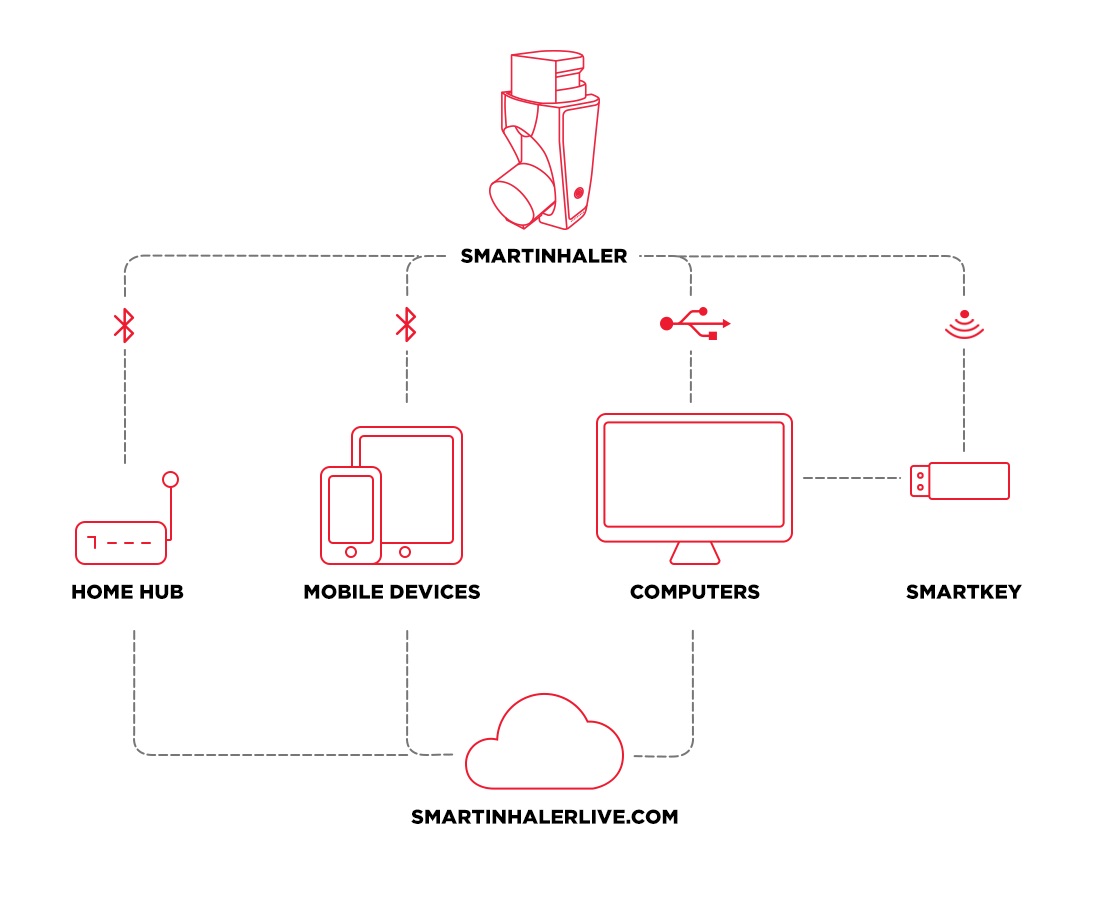- Smartinhaler use clinically proven to reduce hospitalisations
- Could save lives through better asthma control and reduced asthma attacks - 82% of UK patients’ asthma is currently uncontrolled
- Potential to save NHS resources by reducing expensive emergency asthma care - emergency hospital admissions costs 23 times that of an asthma review
The National Institute for Health and Clinical Excellence (NICE) has today issued a Medtech Innovation Briefing on Smartinhaler – Adherium’s digital inhaler technology platform, which has been proven to increase patient adherence to asthma medication, reduce hospital visits, and cut the time needed off school or work over the current standard care.
NICE’s briefing recognises the role that our Smartinhaler could take in improving the current standard of asthma care
Asthma affects the lives of 5.4 million people in the UK, and the search for effective treatment beyond the current standard of care has been a key focus of healthcare services and charities due to the huge impact on the economy.
Asthama UK’s Annual Asthma Survey 2016 report, released last week, estimates the cost of asthma care in the UK to be over £1.1billion per year, including GP visits, medication costs, and hospital admissions.
Smartinhaler is a digital monitoring device which attaches to standard asthma inhalers, providing medication reminders and tracking inhaler usage.
The data is analysed by the Smartinhaler online platform, which allows real-time monitoring of adherence to asthma treatments via an app or PC, with data shared between patients and clinicians, determining whether a review of the patient’s medication is necessary.
Tracking and analysing a patient’s inhaler trends online and in real-time means we can address and improve adherence, reducing asthma attacks and hospitalisations
NICE’s briefing summarises key points observed from five randomised controlled trials in the UK, Australia, and New Zealand, involving a total of 589 people with asthma, adults and children, using Smartinhaler in a community setting.
NICE concluded that each trial showed that Smartinhaler devices were more effective than the current standard of care in improving adherence to asthma medication.
NICE observed that use of Smartinhaler could lead to a change in the approach to routine asthma reviews, with data used to identify people who need more-frequent review, or who do not need to be seen in person for an annual review.
The availability of reliable, real-time data was also highlighted by NICE as having potential to improve interactions between asthma patients and their clinicians and ensuring those patients with severe asthma are referred to specialist services.

Dr Louise Fleming, clinical senior lecturer at the National Heart and Lung Institute at Imperial College London, said: “I have been using the Smartinhaler platform as standard practice for patients within my asthma clinic and have seen first-hand the benefits to patient care that this technology can have.
I have been using the Smartinhaler platform as standard practice for patients within my asthma clinic and have seen first-hand the benefits to patient care that this technology can have
“Tracking and analysing a patient’s inhaler trends online and in real-time means we can address and improve adherence, reducing asthma attacks and hospitalisations.
“This not only saves time and money, but also, by putting the monitoring app directly in the hands of the patient, you enable them to manage their condition more effectively, improving quality of life.”
The initial patient focus for Smartinhaler is on poorly-controlled asthma, particularly in children, and patients with severe persistent asthma.
Currently, 82% of UK patients feel that their asthma is poorly controlled, emphasising the acute need for disease monitoring and regular treatment reviews.
Asthma UK’s report also states that two thirds of asthma sufferers in the UK are still not receiving the basic care they need to manage their asthma properly, with more than a quarter of patients missing a week or more of work or education a year because of their condition.
Asthma UK also flagged that innovations, such as smartinhalers, demonstrate the emerging potential for technology to address the challenges facing asthma management and self-management and ultimately help stop asthma attacks.
Garth Sutherland, chief executive of Adherium, said: “NICE’s briefing recognises the role that our Smartinhaler could take in improving the current standard of asthma care.
“By adopting the digital technology that already exists and is so widely accepted in other areas of everyday life, we can help improve health outcomes.
“It is shocking that 82% of UK asthma patients feel their asthma is uncontrolled and we look forward to working closely with the NHS to bring the benefits of our technology to as many patients as possible.”
Click here to access the briefing in full.
